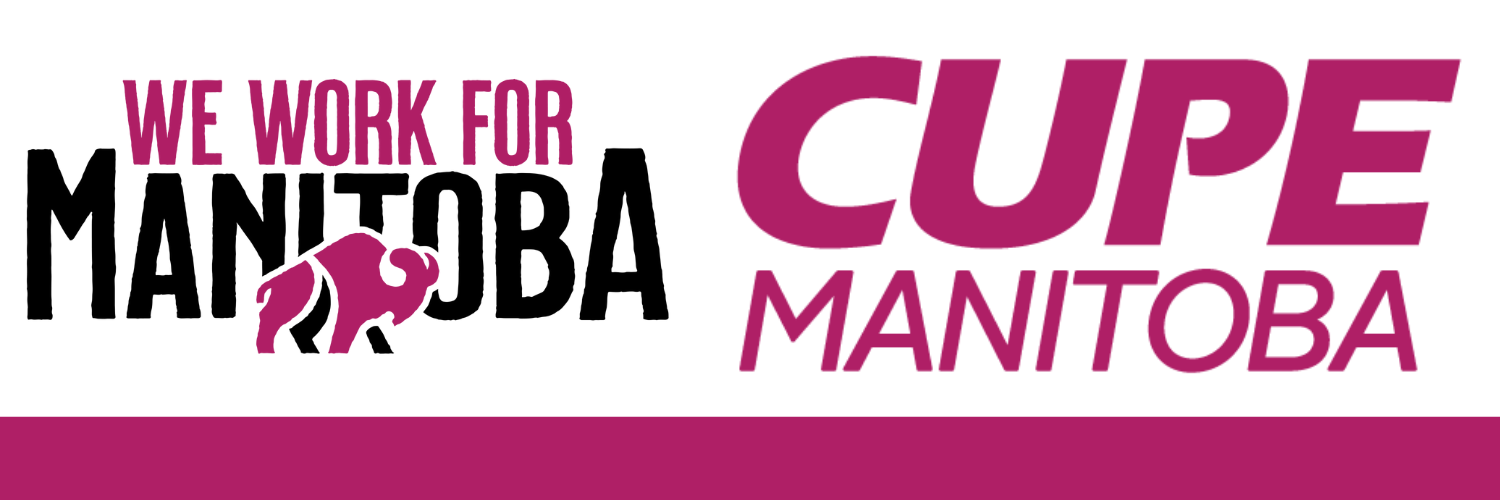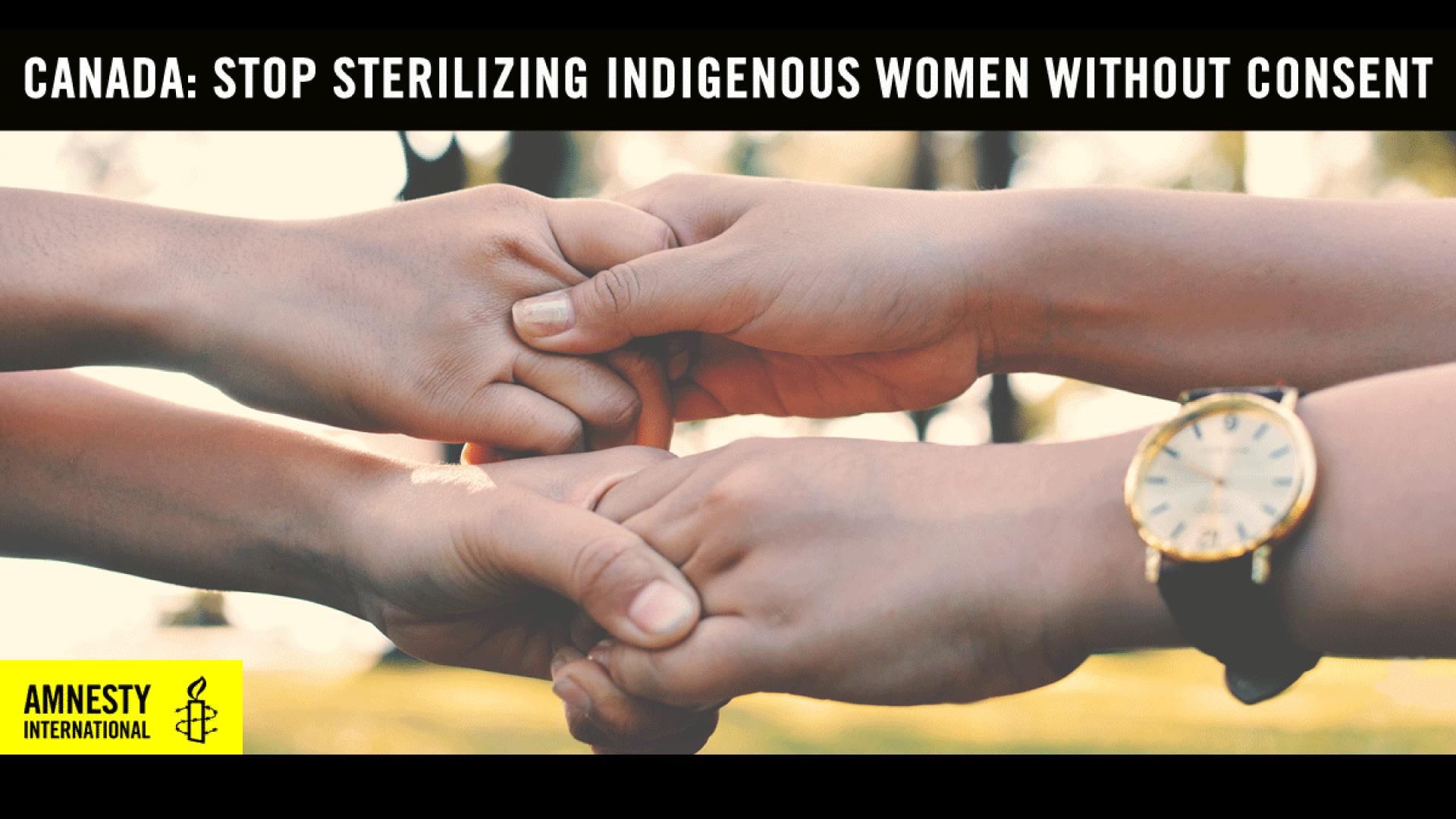Across Canada and as recently as 2017, Indigenous women report being
forcibly or coercively sterilized. Some women were incorrectly told the procedure is reversible.
Others were separated from their babies until they consented to a tubal ligation.
Forced and coerced sterilizations of Indigenous women are a result of systemic violence and
discrimination against Indigenous peoples in the provision of public services in Canada, a pattern
well known and acknowledged by government. They are an assault on Indigenous women, their
families, their communities, and their Nations that have already been subjected to forced
assimilation through colonialism, including eugenic practices.
Sterilizing women without their free, full, and informed consent is a form of violence and torture.
Measures to prevent births within ethnic or racial groups is explicitly prohibited by the
Convention on the Prevention and Punishment of the Crime of Genocide.
All women have the human right to make decisions around if, when, and how to create a family.
All women have a right to live free from violence and discrimination. All women have a right to
health.
We the undersigned organizations call on the Government of Canada to take immediate action to
address the issue of coerced and forced sterilizations of Indigenous women in Canada and:
• Investigate allegations of forced or coerced sterilizations in Canada, with particular
attention to cases involving Indigenous women and girls, ensuring justice and reparations
to survivors and their families.
• Appoint a special representative to meet with survivors and their families to hear their
requests for justice and reparations.
• Apply existing criminal legislation on aggravated assault and disciplinary measures for
breach of professional standards for cases of forced or coerced sterilization.
• Change government policies and practices to explicitly prohibit sterilization without free,
full, and informed consent.
• Implement Truth and Reconciliation Commission Calls to Action 23 and 24 on increasing
the number of Indigenous healthcare professionals and providing cultural competency
training to all healthcare professionals.
• Develop a comprehensive National Action Plan to prevent and address gender-based
violence involving the federal government, provinces, territories, municipalities, and First
Nations.
Endorsed by:
1. Aboriginal Front Door Society
2. Aboriginal Legal Services
3. Aboriginal Women’s Action Network
4. Action Canada on Sexual Health and Rights
5. Alberta Society for the Promotion of Sexual Health
6. Alliance de la Fonction publique du Canada Montérégie – comité des femmes
7. Alliance of Canadian Cinema, Television and Radio Artists – National
8. Amnesty International Canada
9. Amnistie internationale Canada Francophone
10. Atira Women’s Resource Society
11. The Barbra Schlifer Commemorative Clinic
12. BC Native Women’s Association
13. British Columbia Civil Liberties Association – Association des libertés civiles de la
Colombie-Britannique
14. Canadian Association for Community Living
15. Canadian Association of Midwives
16. Canadian Association of University Teachers
17. Canadian Civil Liberties Association
18. Canadian Federation of Nurses Unions
19. Canadian Feminist Alliance for International Action
20. Canadian Friends Service Committee (Quakers)
21. Canadian Health Coalition
22. Canadian Labour Congress
23. Canadian Union of Postal Workers STTP
24. Canadian Union of Public Employees
25. Canadian Union of Public Employees – Ontario
26. Canadian Voice of Women for Peace
27. Canada Without Poverty
28. Centre for Israel and Jewish Affairs
29. Centro de Desarrollo Andino Sisay (Peru)
30. Comité de América Latina y el Caribe para la Defensa de los Derechos de las Mujeres
(Peru)
31. Comité des femmes Laval, Laurentides et Lanaudière et Abitibi-Témiscamingue
32. Canadian Women’s Foundation
33. DEMUS – Estudio para la Defensa de los Derechos de la Mujer (Peru)
34. Fédération des femmes du Québec
35. Federation of Medical Women of Canada
36. Femmes Autochtones du Québec
37. Femmes de l’Alliance de la fonction publique (Québec)
38. First United Church Community Ministry Society, Vancouver
39. Greenpeace
40. Human Rights Research and Education Centre, University of Ottawa
41. International Association of Machinists and Aerospace Workers
42. International Women’s Rights – Manitoba
43. Institute for the Advancement of Aboriginal Women
44. Interagency Coalition on AIDS and Development
45. Inter Pares
46. KAIROS: Canadian Ecumenical Justice Initiatives
47. La Fédération des travailleurs et travailleuses du Québec
48. MATCH International Women’s Fund
49. National Association of Women and the Law
50. Native Women’s Association of Canada
51. Nobel Women’s Initiative
52. Ontario Federation of Labour
53. Ontario Secondary School Teachers’ Federation
54. Oxfam Canada
55. Pacific Association of First Nations Women
56. Public Service Alliance of Canada
57. Save the Children Canada
58. Sexual Health Nova Scotia
59. Planned Parenthood Regina
60. SHORE Centre
61. Syndicat Québécois des Employées Et Employés de Service Section Local 298-FTQ
62. UFCW Canada
63. Union of BC Indian Chiefs
64. United Steelworkers
65. WAVAW Rape Crisis
66. West Coast LEAF
67. Women’s Legal Education & Action Fund (LEAF)
68. Women’s Shelter Canada
69. Youth Coalition for Sexual and Reproductive Rights
70. YWCA Canada
71. Dr. Pamela Palmater, Chair in Indigenous Governance, Ryerson University
72. Dr. Sheryl Lightfoot, Canada Research Chair in Global Indigenous Rights and Politics

